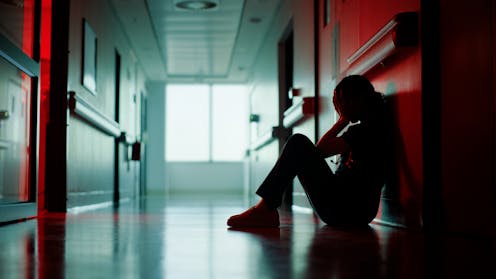The complex reality of college student mental health: Data reveals both challenges and positive tren
College students’ psychological well-being has deteriorated in the past two decades, but recent data suggests the tide could be turning.

The word “crisis” is used frequently and, I would argue, inaccurately, to depict the psychological well-being of today’s college students.
It is true that college students’ mental health has deteriorated in many regards during the past two decades.
The Healthy Minds Study, which gathers national survey data on tens of thousands of students annually, has found that the percentage who considered suicide in the prior year rose from 6% in 2007 to 13% in 2024. The percentage of students who made a specific suicide plan tripled during that period.
While some news reports portray the current state of student mental health as an unprecedented crisis, the full picture is more nuanced. As a psychologist who has been researching college student mental health for more than 20 years, as summarized in my recent book, “College Student Mental Health and Wellness: Coping on Campus,” I believe recent data suggests a turning of the tide.
The 2024 Health Minds Study found a slight decrease over the previous two years in the percentage of students contemplating suicide.
Data also reveals a similar decline in the percentage of students dealing with severe anxiety from 2022 to 2024.
The study marks the first time since data collection began on suicide or severe anxiety that there has been a two-year decrease in either area.
Reason for concern

To be clear, there is reason for concern about the psychological well-being of college students.
Healthy Minds Study researchers found that in 2007, 9% of college students were taking psychotropic medication such as antidepressants. In 2024, that number had grown to 26%.
A 2024 national survey conducted by the American College Health Association found that more than a third of students received mental health care in the previous year.
The demand for psychological services at college and university counseling centers has outpaced growth in undergraduate enrollment more than fourfold.
From 2013 to 2021, suicidal thoughts, depression and anxiety worsened, particularly among Native American and Alaskan Native students and other students of color.
During that same time, there was a 13% increase in students who were at risk for developing an eating disorder.
Findings from another national dataset gathered by the Center for Collegiate Mental Health, an international network of more than 800 college and university counseling centers, indicate that from 2010 to 2024, depression symptoms increased 18% among students receiving psychological services, general anxiety symptoms rose more than 25%, and social anxiety symptoms climbed more than 30%.
In addition, students’ family-related distress steadily increased during the past decade.
The sky is not falling

Despite these challenges, there is good news regarding decreases in the share of students considering self-injury and reporting depression symptoms.
Data from the Healthy Minds Study reveals that the percentage of students considering self-injury has not increased the past two years, after more than doubling from 14% in 2007 to 29% in 2022.
A similar pattern can be found in Center for Collegiate Mental Health data about depression. Depression symptoms have decreased each of the past two academic years.
The network has been collecting depression data since 2010, and never before have scores dropped in consecutive years.
Other researchers have noted a similar recent decrease in depression among college students.
The Center for Collegiate Mental Health data also indicates that students’ academic distress peaked following the onset of COVID-19 and declined each of the past three years, returning to pre-pandemic levels. Students’ frustration has also shown a gradual, 7% decline from 2010 to 2024.
Furthermore, for the first time since 2012, there has been a two-year uptick in college students who are flourishing, according to data from the Healthy Minds Study. Other researchers have found a similar recent trend, accompanied by a decrease in student loneliness.
More good news, based on data, about what students put in their bodies: Symptoms related to eating disorders have not increased in any of the past four years, according to the Center for Collegiate Mental Health. Data from the network indicates that current alcohol use is at its lowest level since 2010, declining 29% over that period.
Binge drinking has also decreased 18% since 2012, according to the Healthy Minds Study.
We need data, not dread

Valid data can help in discerning the truth about college student mental health.
Data that captures national trends in college student psychological well-being is needed to support mental health professionals. For example, as data reveals emerging trends, such as an increase in college students with attention-deficit/hyperactivity disorder, training can be provided to clinicians in treating students with these concerns.
Campus mental health professionals and administrators can also use data to advocate for resources they need to support students. For instance, our research has found that students of color are more likely to seek psychological help when there are therapists on staff from the same ethnic or racial background. This data can inform hiring practices at college and university counseling centers.
Finally, continuous data collection can help determine how college student mental health is impacted by specific events, such as pandemics, campus shootings and laws that eliminate diversity, equity and inclusion programs. During the COVID-19 pandemic, social anxiety decreased, while general anxiety spiked.
These events may not affect students equally.
International students, a group that already experiences heightened suicidal thoughts, may be particularly impacted by recent news of visa cancellations and deportations.
Jeffrey A. Hayes has received a research grant from the American Foundation for Suicide Prevention to study college student suicide.
Read These Next
FDA’s abrupt flip-flop on Moderna’s mRNA flu shot highlights growing risks to drug-makers of investi
After pushback, the agency reversed course and agreed to review Moderna’s application after all.
Tahoe avalanche: What causes snow slopes to collapse? A physicist and skier explains, with tips for
An avalanche during a heavy, wet snowstorm in the Sierra Nevada killed at least eight skiers on a guided…
How Jesse Jackson set the stage for Bernie Sanders and today’s progressives
The coalitions that Jackson built during his presidential campaigns created enduring infrastructure…






